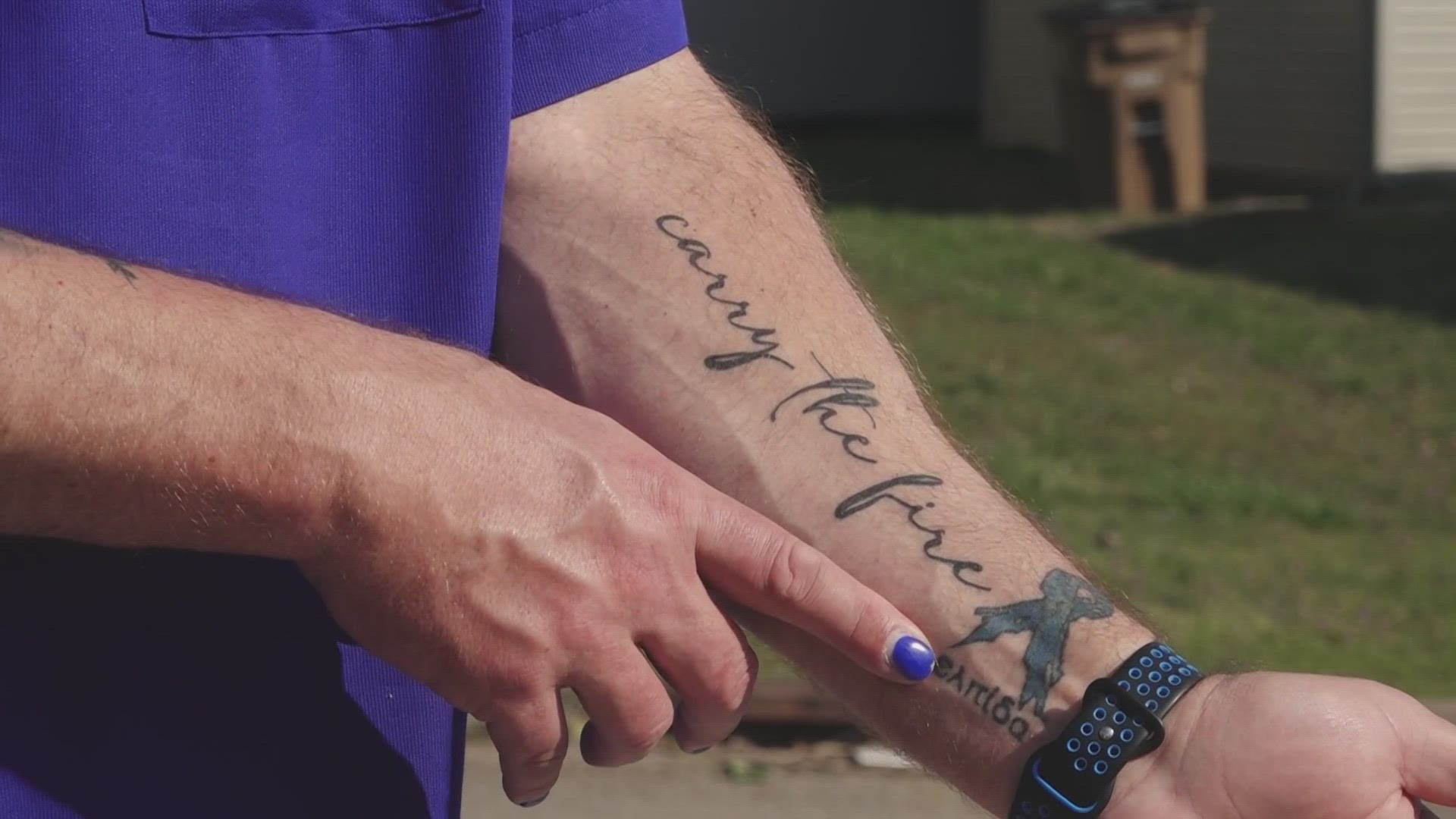KNOXVILLE, Tenn. — Michael Holtz is a survivor of colorectal cancer, a diagnosis he received more than a decade ago while training to run a marathon.
He's been cancer-free since 2013 and spent the last eight days jet-setting from Arizona to Washington D.C., to spread his message about taking preventative measures against the illness.
"My surgeon liked to let me know, you know, I should have had a recurrence. There was a 95% likelihood that I would have had a cancer recurrence in the first five years after my diagnosis," Holtz said. "So I feel very blessed and lucky that that didn't happen to me. And ever since I've wanted to do everything I can to help other people who have went through what I went through."
He attended a colorectal cancer awareness event, the Colorguard Classic, in Tuscon, last week.
Holtz said he was able to connect with 300 survivors of the cancer at this event. It aims to raise money and awareness about the illness.
Then, he hopped on a plane to Washington D.C. and spoke with legislators about colorectal cancer.
Holtz said his goals in Washington were to advocate for $20 million in Department of Defense funding to be directed to the medical research program for colon cancer, to call for the Centers for Disease Control and Prevention to increase funding for the prevention of the illness and for lawmakers to join the congressional colorectal cancer caucus.
Tennessee Representative Tim Burchett (R) answered the call, Holtz said.
"Cancer is a non-partisan issue, it affects all of us regardless of political affiliation," Holtz said. "So it's not often we get a lot of pushback on cancer-related issues. But it was really exciting to get that level of support initially."
Holtz said he and Burchett have spoken about the illness before.
"I had a productive meeting with Michael recently, and after that meeting, I joined the Colorectal Cancer Caucus," Rep. Burchett said. "Advocates like Michael who have first-hand experience with the issue are an important part of the legislative process because they really know what’s needed.”
Holtz said he encourages everyone to get screened.
"Get tested," he said. "Go to your doctor. If you're 45 or older, you need to get screened for colorectal cancer."

